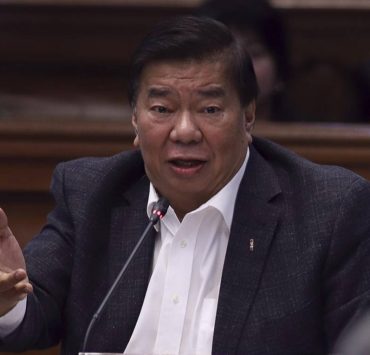House taps state firms’ funds for 2023 projects
The House of Representatives has passed on final reading a measure that would allow the government to tap excess funds of the government-owned and -controlled corporations (GOCCs) for unprogrammed appropriations in the 2023 national budget.
In Wednesday afternoon’s plenary session, congressmen voted 229-4-2 to approve on third reading House Bill No. 9513, authored by Albay Rep. Joey Salceda, chair of the House ways and means committee.The bill proposed to amend a special provision for unprogrammed appropriations in Republic Act No. 11936, or the 2023 General Appropriations Act (GAA).
It sought to provide an additional criterion for the release of unprogrammed appropriations and “maximize the idle funds” of the GOCCs.
HB 9513 proposed that the government be allowed to tap funds of the GOCCs “in excess of their current administrative and operational expenses, benefit obligations or reserve requirements” for unprogrammed appropriations in the 2023 national budget.
Unprogrammed appropriations are items “which provide standby authority to incur additional agency obligations for priority programs or projects when revenue collection exceed targets, and when additional grants or foreign funds are generated.”
Under the 2023 GAA, only the following sources may be tapped for unprogrammed appropriations: excess revenue collections in any tax or nontax revenue sources, new revenue collections and approved loans for foreign-assisted projects. Potential implications
Among those who voted against HB 9513 was Gabriela Women’s party list Rep. Arlene Brosas, who said the measure will have “potential implications on social services and programs and will likely only serve to expand the pork barrel system.”“We question the necessity of increasing the cash streams for unprogrammed funds when these funds should rightfully be remitted to the National Treasury as official revenues. The proposal to source funds from the excess GOCC revenues raises concerns about the direction of the GOCCs and the potential intensification of profit-based fund sourcing at the expense of social services and the welfare of ordinary Filipinos,” the House assistant minority leader said.She pointed out that many of the GOCCs are mandated to address social service needs, such as health care, energy and housing.
“Instead of allocating funds through unprogrammed funds, it is imperative to prioritize regular funds for agencies directly involved in providing social services. Discretionary allocations through unprogrammed funds may also undermine the intended projects and programs for the Filipino people. We must prioritize increasing the funds for agencies with direct social services, rather than relying on discretionary allocations through unprogrammed funds,” Brosas said. INQ

















